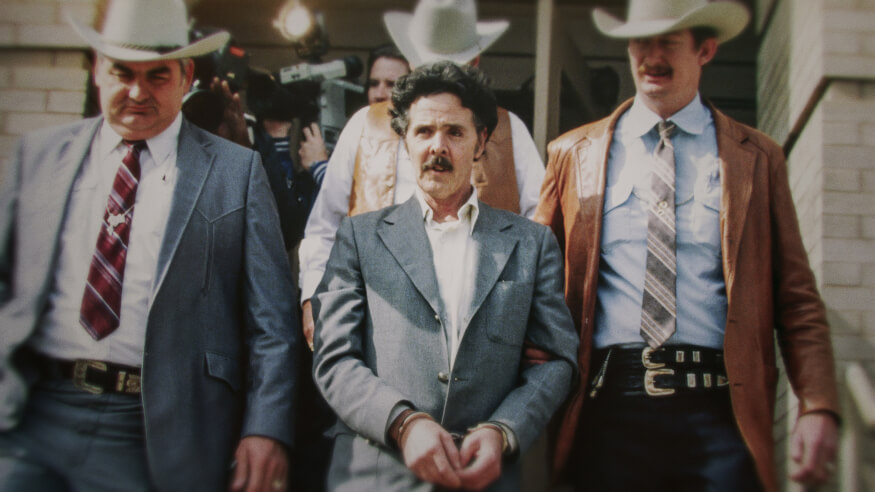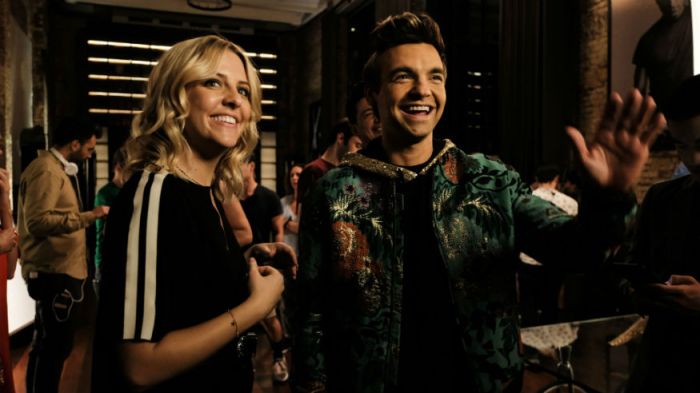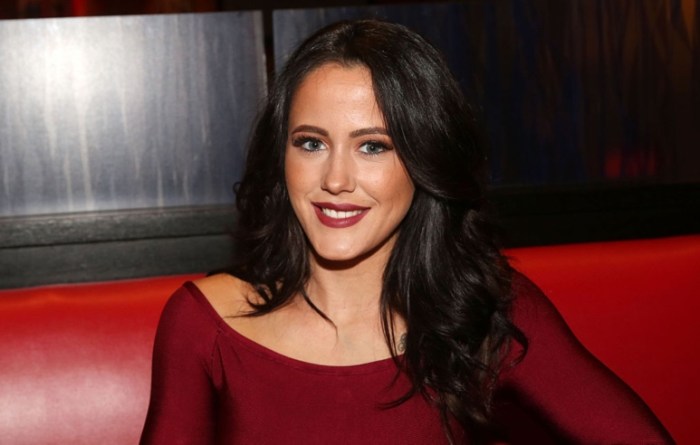What happens when a murder is closed? More times than not, most people are happy with that result, it brings a sense of relief to the victim’s family and makes community members feel safe knowing a violent criminal is behind bars. But what if the killer behind bars didn’t really commit the crime, even after a confession? It sounds pretty crazy right? But that has happened, hundreds of times — and that’s just counting false confessions from one man. “The Confession Killer” examines the psychological phenomenon behind Henry Lee Lucas, who in 1983 began a confession spree claiming to be the culprit behind upwards of 600 murders. Now, the once-deemed worst serial killer in the country is proving to be nothing more than a man who had a knack for lying and a desire to please. Filmmakers Robert Kenner and Taki Oldham teamed up to uncover the almost unbelievable story behind Lucas and sat down with Metro to give more insight on the insanely unhinged tale that is quite frankly stranger than fiction.
Filmmakers Robert Kenner and Taki Oldham talk the insane story of false serial killer Henry Lee Lucas
What initially drove you both to make this docu-series about Henry Lee Lucas?
TO: I had seen a true-crime documentary back in 2014, and it posed the question that if Lucas didn’t kill all of these people, then who did? Way back then it was seen as an unanswerable question. DNA evidence has since come around, and sure enough, there have now been some isolated cases that no one was linking. There was a case here or a case there where DNA was actually finding the real killer, so to me, it felt like an opportunity to tell a new chapter of this story and start to get some answers. From there I did a bit of research and spoke to Robbie who saw this as a much bigger story.
RK: What I thought was so fascinating, with each case they would say “Oh, we got it wrong and it wasn’t Henry.” But they didn’t put together that dozens of cases turned out to not be Henry. So there’s a question that we were putting together that no one else was, which is how could this have happened? Here is the worst serial killer in US history, and yet every case is proving that Henry didn’t do it. We just found that fascinating. Combine that with the conversations we had with victim’s family members and the pain that they’re going through of not being able to determine who really killed their loved ones, and there really is just an amazing series here. We spent about a year and a half on it before Netflix got involved, so it was about five years in the making. We got some incredible footage and everyone that we spoke to remembered this as an extremely important moment in their lives, we just had a wealth of material to work with which is extraordinary.

Was there anything that completely took you by surprise while working on this project?
TO: I was really shocked the whole way.
RK: Everything was shocking, it’s a jaw-dropping story. We had all this footage of this murderer who murdered hundreds of people sitting in the sheriff’s office, answering the telephone, drinking coffee and with no handcuffs on — something looked wrong. The story was constantly surprising us and riveting us. It’s a story you don’t normally get to tell. It goes beyond just being about a serial killer, it’s about a system and the psychology behind how this happened.
Both Henry Lee Lucas and [Sheriff] Jim Boutwell have passed away, is there a part of you that wishes you had the opportunity to speak to them?
RK: On some levels, we have as much of Henry as you could ever really need. We had hours and hours more, so I feel like Henry’s voice comes through loud and clear. I think on other levels that’s true of Boutwell too. What’s interesting about Boutwell is that every one of his cases was overturned. Henry did not commit one of the five cases that Boutwell said he did, that’s a bad record to have been proven. In the series, Bob Prince did not like that we were treating Boutwell badly, he even said he wished Boutwell were here to defend himself.
TO: If I could ask Boutwell one question, I’d be interested to ask him if he would do anything differently or what he would think about things now, given what happened with DNA. Even after Lucas had recanted and evidence had come out, he never changed his story. Would we hear anything different from him? I tend to think not.
RK: We did ask Bob Prince if he would do anything differently, and he said no. I can totally understand how Boutwell and Prince were fooled by Lucas, but I am concerned that he may think we shouldn’t do anything differently today with no desire to re-open anything. It’s not easy to re-open cases. When you have a closed case in your department you look good, but when you have a case that you really didn’t solve, you still owe it to constituents to find the truth.

Why do you think there were so many miscarriages of justice involved with this story?
TO: I think it was the perfect storm, you have a guy who for whatever reason decided to tell the world that he was the worst serial killer to ever live. You then have a police agency who was willing to believe him, and you have hundreds of other police and family members all over the country who just wanted cases solved and were probably a little too willing to believe it.
RK: Henry had an IQ of 87, but there was also something about Henry that was really smart and very convincing — plus he liked to please. Boutwell wanted to find a murderer and Henry was happy to play the role. It’s not that we’re uncovering a great conspiracy, we’re looking at a psychological drama that we found incredibly fascinating.
“The Confession Killer” drops on Netflix Dec. 6.



















